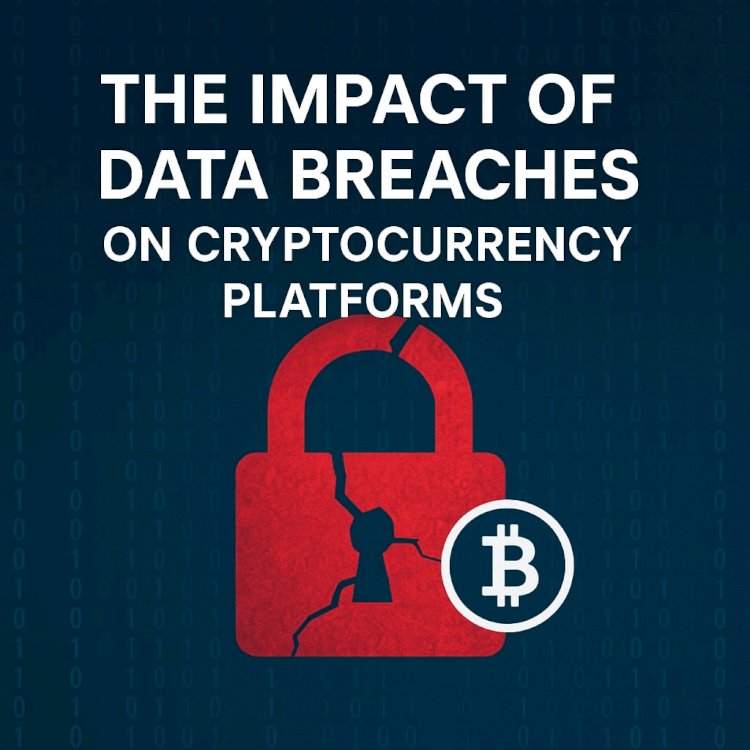The Impact of Data Breaches on Cryptocurrency Platforms

By Dr. Pooyan Ghamari, Swiss Economist and Visionary
The rise of cryptocurrencies has brought with it new opportunities for innovation, investment, and financial independence. Yet it has also introduced a new landscape of risks. Among the most severe are data breaches—incidents in which sensitive information, user credentials, or private keys are exposed. In the traditional financial system, data breaches are damaging but can often be contained through regulatory safeguards. In the cryptocurrency world, the stakes are much higher: once digital assets are stolen, they are nearly impossible to recover.
The Nature of Data Breaches in Crypto
Cryptocurrency platforms, including exchanges, wallets, and decentralized applications, manage vast amounts of sensitive information. This includes user identities, transaction histories, and private keys. A single breach can compromise millions of accounts, drain funds, and permanently erode trust.
Unlike centralized banks, most crypto platforms operate with fewer regulatory protections. Their decentralized ethos often conflicts with rigid compliance frameworks, leaving gaps that malicious actors exploit. As a result, data breaches not only lead to financial losses but can destabilize entire ecosystems.
Consequences of Breaches
1. Direct Financial Losses
When attackers gain access to private keys or hot wallets, funds can be transferred instantly. Unlike credit card fraud, there is no mechanism to reverse blockchain transactions. This makes stolen assets effectively irretrievable.
2. Loss of Trust and Credibility
Exchanges and platforms rely heavily on user confidence. A major breach can drive investors away, damaging reputation and reducing trading volumes. Once trust is broken, rebuilding it takes years.
3. Market Volatility
High-profile breaches often trigger panic selling, leading to sudden drops in asset prices. Fear spreads quickly in the crypto market, amplifying volatility and discouraging new adoption.
4. Regulatory Backlash
Breaches attract the attention of regulators, prompting stricter compliance requirements. While this can improve long-term security, it also raises costs and barriers to entry for platforms.
5. Psychological Impact on Users
Beyond financial loss, victims experience stress, fear, and skepticism toward the entire crypto ecosystem. This psychological damage hinders mainstream adoption.
Notable Lessons from Past Breaches
History has shown the devastating scale of crypto breaches. Early incidents, such as the collapse of Mt. Gox, wiped out billions of dollars and remain cautionary tales for investors. More recent breaches have demonstrated that even sophisticated platforms with advanced security measures remain vulnerable. Each incident underscores the necessity of combining technological safeguards with robust governance and oversight.
The Need for Stronger Security
To mitigate risks, platforms must adopt multi-layered security practices:
-
Cold storage for the majority of user funds, minimizing exposure to online attacks.
-
Two-factor authentication and advanced encryption for user accounts.
-
Regular audits by independent security experts to uncover vulnerabilities.
-
Incident response frameworks that enable rapid containment and communication during breaches.
-
Decentralized custody solutions that reduce the risk of single points of failure.
Users themselves also play a role, practicing good cyber hygiene, safeguarding their private keys, and exercising caution with third-party services.
The Broader Implications
Data breaches in crypto are not isolated events. They shape the future of digital finance. Repeated incidents discourage institutional investors, delay mainstream adoption, and invite heavier regulatory oversight. On the other hand, they also accelerate innovation in security technology, pushing the industry toward stronger solutions and greater resilience.
The impact of data breaches on cryptocurrency platforms extends far beyond immediate financial losses. They undermine trust, destabilize markets, and shape the regulatory environment. In a space defined by transparency and decentralization, security must be treated as a foundation, not an afterthought.
For the cryptocurrency ecosystem to achieve its promise of global financial empowerment, platforms must prioritize robust defenses, proactive governance, and user education. Only then can trust be restored and sustained in the digital economy of the future.
About the Author
Dr. Pooyan Ghamari is a Swiss economist and visionary who explores the intersection of blockchain, security, and sustainable economic systems. His research and writings focus on how decentralized technologies can be safeguarded against emerging threats while enabling global innovation.

 content-team
content-team 


















